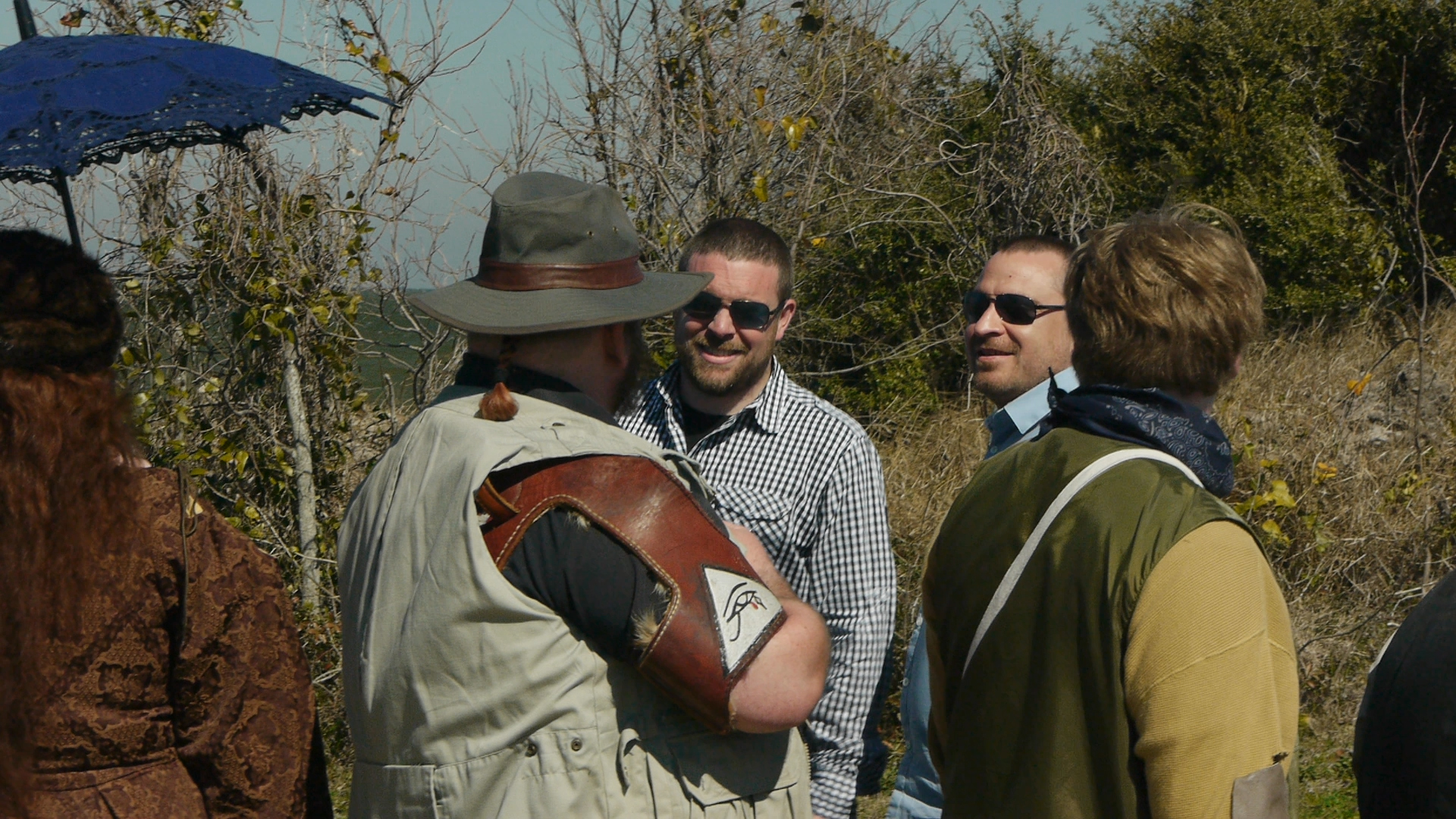
**Exclusive** In Their Own Words: “Aether” Co-Directors Drew Hall and Horst Sarubin
Hello, readers! Not long in waiting for the next stage of our coverage involving the new, in development, steampunk-inspired sci-fi project, “Aether”! To date, we’ve talked to the Production Designer, the Visual Effects master, and the 3-time Oscar winning Director of Photography involved on the project, and yet what better way to get the inside scoop than from the director himself, Drew Hall, with the bonus opportunity to have join in the interview his co-director and business partner, Horst Sarubin! Let’s not dawdle, but get right into it! Prepare for one epic, awesome read, folks!
One Film Fan: The story so far, how were you each first drawn to the Directing profession? When did it become evident that directing was going to be your career choice?
Drew Hall: When I was 8 years old, my late Grandfather gave me a super 8 camera and some film. I quickly ruined it, but the seed was planted. My family eventually got a VHS recorder, complete with the shoulder bag recorder. I cast friends in the neighborhood to shoot WWF-style promos and enter “matches” with pillows. At night I’d watch the same few movies on rotation: “Raiders of the Lost Ark”, “Star Wars”, and Disney’s “Robin Hood”. Occasionally I’d watch “The Black Hole” if I was feeling brave. I connected to those movies, as many of us did. Two events led me to becoming a director. The first was when I was 14. I had gotten in trouble for having some “contraband” (Playboy). I was grounded for lying to my parents and missed out on a really cool opportunity to go see the Saints. That night, despite my parents’ frustrations, we went to see a movie. I’m pretty sure it was “Three Men and a Little Lady”. Although my parents were mad at me, for those 2 hours we were united under the banner of a singular idea – sitting in the theater together watching a movie. For those 2 hours the frustrations of the day faded away and, as a family, we laughed (I think). The second event was far later as I had always wanted to be a journalist. I was on my way to the University of Nevada-Reno for an entrance interview. We were over Texas maybe when I looked out the window. The cloud formations had formed this beautiful castle in the sky illuminated by gold. I was listening to DJ Shadow’s “The Changeling”. The combination of aesthetic and sonance brought me to tears. I knew right then that all I wanted to do is share that same emotional feeling with the world. UNR meant nothing, and I knew exactly what I wanted to do. I still interviewed, but returned home ignited with passion. The short answer – I blame Steve Guttenberg.
Horst Sarubin: Well that goes way back. Probably before I knew what a director was, or had even heard the word. But as far back as I can remember, I was in love with storytelling. Be it ghost stories at Halloween, drawing intricate picture stories with crayons, or staging epic battles with my G.I. Joe’s, I was always attracted to the energy and the motion of telling a good story. I have a memory from middle school, sixth or seventh grade, when the school librarian told us that she knew we were too old for stories, but she wanted to test the story on us to see if it was okay for the younger kids. We all groaned of course, thinking this would be a silly children’s tale. She proceeded to tell us one of the creepiest stories I’ve ever heard, with a very gory ending that certainly wasn’t fit for children younger than us, and possibly not even for us. She had purposely lowered our expectations, and then hit us full on the face with an amazing story. It was like a roller coaster ride. More than just writing the story is the performance, more than just the performance is the ambience and the setup. I started telling ghost stories around campfires with my friends. I would make them theatrical by throwing firecrackers in the fire or using fake blood. I loved storytelling. It wasn’t until I was a freshman in high school that I became aware of what a director was. I had heard the name of course, and had a vague inkling of what a director did, but it wasn’t until a conversation with a friend during gym class that I realized I could tell stories to thousands of people at the same time. I knew at that moment that I wanted to be a director.
O.F.F.: How did you both further learn the art (ie: mentors, influences, schooling)?
DH: I attended the University of South Alabama. Best idea ever. The professors there really got behind me and supported my dream in a way that I could not have imagined. We found out that the school had some old Bolex H-16 Rex cameras lying around – so a group of us “borrowed” them and began shooting all of our projects on film. The City of Mobile has a film office run by the beautiful and talented Eva Golson. She officially gave me my first break – getting me in the door of the production office on a movie called “Sacrifice” (starring Michael Madsen). I was a set PA. It was brutal – what I would later call a grinder film. I stuck through it and met my mentor Scott Lumpkin. He took me under his wing as a producer’s assistant. I owe the professional portion of my career to him.
HS: I say you never stop learning the art. If you love it, and have a passion for it, you are always looking for something new and exciting to add to your arsenal. Those inspirations can come from anywhere. They come from school, they come from books, they come from conversations with friends, and of course they come from watching the masters of the craft. I’ve been very fortunate in my career to be able to watch some of those masters directing firsthand. Watching the nuances of how they make decisions, manipulate scenes, direct actors and move the camera is an amazing learning experience. No two directors do it the same. This can be both horrifying and quite freeing. On the one hand, it gives you faith in your instincts, by letting you know that there is no set path. The flip side of that is that sometimes you just want to know if you’re doing it right, and there’s no one to tell you except yourself.
O.F.F.: When preparing for a film, do you both always have the same routines/methods when coming up with ideas, putting together cast and crew, and pitching it to the funding sources?
HS: This is a funny one for me. There are some things that I feel like I HAVE to do, some of which are silly and superstitious. I have this ancient, nearly destroyed T-shirt that only comes out on the first day of shooting. It’s a ratty Metallica T-shirt that I had in high school and I like to mythologize it, as it’s the one I was wearing when I discovered that I wanted to be a director. Then the other half of me is always looking for new ways to do things. I think that’s one of the necessary skills of directing. Adaptation. You can never plan for every eventuality, so being ready to go with the flow and adapt or problem-solve is an essential skill. Frankly, sometimes it gets boring if you aren’t doing something on the fly.
DH: Hmmm…I don’t ever really know what story will inspire a script. When I am inspired I go to the same coffee shop, smoke the same cheap cigars, and sit in the same seat – as much as I can. I start with a detailed outline and explore the story from a universal approach. If I like the idea, I will typically pitch it around to my manager, industry friends, and eventually a writer who I like to work with. I do all this BEFORE bringing it to Horst, as I see this as the vetting process. Once its vetted, I bring Horst in and we do story notes and push forward from there. I like to use the same crew as much as I can. We have such a great short hand that more time is spent on the movie and less on working out communication errors. I love the pitch process. I worked in advertising for a while – so the pitch game is as exciting as the first day of principal. I dive in and go. We have been lucky to work with the same studio for a while, but we are venturing out more. We like to pitch with content ready – whether it’s a pitch deck (images and text), a clip rip (other peoples work) or if we shoot our own content and present it that way.
O.F.F.: Of the films you’ve done to date, is there one particular genre you’ve enjoyed or is diversity the key to happiness in directing?
DH: “Convergence” is my favorite finished film to date. It’s as deeply personal as viewers want to make it, but it’s also a clean twist on the thriller genre. I loved the cast and crew on all the films, but that experience was the best for me. I slept at night with confidence in the production. Every day presented challenges, but those challenges turned into golden opportunities. As a spiritual guy, the process of shooting “Convergence” deepened my own faith. Every time we hit a wall, God blew it out and made a better door. It was truly amazing. I did a comedy – HARDEST JOB EVER!
O.F.F.: Talk a bit about the creation of your company, Frame 29 Films.
HS: Frame 29 actually started in the mid-90s, on the set of a B-movie that shall remain nameless. That’s where Drew and I met. We hit it off instantly and we haven’t stopped working together, even when separated by thousands of miles of ocean. Today’s version of Frame 29 was formed while Drew was living in Alabama and I was living in New Zealand. Many Skype conversations were had, but we always agreed on one thing – you have to grab the audience in that first second (i.e. the 29th frame). From that point we looked at what we could each bring to the table and how we could grow the company as a whole. We started collaborating in business as we have always done creatively.
DH: Horst and I have been close friends for a very long time, as we met in college. Our goal was to always work together, but it took nearly 7 years to officially make that happen. Somebody left for New Zealand to go hang out with Peter Jackson! (lol) So Frame 29 Films is our venture into story driven content. We have produced, provided aid, trained, and created projects in just about every genre, but we’re not in it solely for ourselves. We like to try and help as many filmmakers as we can as we believe in the idea of mutual benefit, so when we find a script or concept that’s great we try and work with the creators to increase the value of the project and thus we both benefit. It’s a pretty transparent process we’re happy about.
O.F.F.: We spoke with Clayne Crawford and Laura Cayouette in regard to your most recently completed project, “Convergence”. Tell us a little about that project and what it was like to work on it.
DH: “Convergence” is a deeply personal film to me. I put a ton of myself into the characters, and even put my daughter in the film. So when I watch it, the threat feels very high. The cast on “Convergence” was amazing. That was a very dense film on paper, but they trusted me and worked with me to make sure it all played out. I love the crew on that film, as for many of them that was their 4th picture with me. It was challenging for sure, but again, just a pleasure to come to work each day with people who care about the picture. Horror films are kind of lost on me, as I get scared easily, so I just took what scared me the most and put that into play on the screen. I totally jumped a few times, and I also got quite squeamish at one particular scene! I think we had to overdub the audio because the entire cast and crew screamed as it happened. Yet there’s a heart in the film that beats on its own. I love movies that linger with you, and I feel like we did that with “Convergence”.
HS: “Convergence” marks the point where Drew and I were back on set together at the same time in more than five years. I was second unit director and VFX producer. The energy on set was something special. It reminded me that budget doesn’t make a good film, creativity and talent do. The experience as a whole was amazing, except that the night we wrapped up, my appendix burst. It was odd working in the old shuttered hospital for weeks, and just as I thought I had got away from it, I found myself in a real one.
O.F.F.: So, onto your current project, “Aether”, currently in development. How did you come up with the overall concept?
DH: About 10 years ago, I had an obsession with Tesla. That led to the development of a script called “Lightning In the Bottle”. It was a short that took place in an alternate timeline, and that was the gateway for me to research steampunk. From there the seed was planted and it grew over the years. Denny Wilkins (co-writer of “Aether”) is a long-time collaborator of mine. One day I just pitched him the concept of a class driven society governed by a floating city. It took off from there and we began building a bigger and bigger world, so much so that we could easily make a series out of “Aether”.
O.F.F.: Could you expand on the basis of the core story? You indicated that this will also have a real world message within it, like you did with “Convergence”.
DH: I believe that good science fiction challenges the status quo or at least stirs the emotional pool. In “Aether” there are several thread lines tying back to modern society. The most prominent of which is class-based oppression. There are three core races in the film. The people of Wavelinde live in a floating city separated from the rest of the world. They believe that the Gods pulled their city from the earth and placed them in the sky to govern those on the surface below. They’re not all bad people, but they do turn a blind eye to what is happening in the small town of Specter, where the “middle” class lives. The town has become obsessed with Aether. People struggle with their day to day survival, and yet they still stand as one, for the most part. But even Specter shuns its eyes towards the mines held by the Bruewen – who seem, at first glance, to be very primal in their means. They live in the shadows. They build their armor from scrap goods and have a totally different culture to those living on the surface above. They represent in many ways those below the poverty line who do anything and everything they can to survive. All three races consider themselves independent and refuse to co-exist with one another.
HS: One of the things I love about “Aether” is that the story has a multitude of layers that all bring different themes of the same message. I like to think of it as a message to inspire people to fight complacency in the face of inequality. Be that fighting stereotypes, gender roles (both male and female), class roles, or even the personal inequalities that we allow to happen within ourselves. There is a strong theme of characters allowing themselves to be diminished by outside forces, and others breaking past this and bettering themselves. They do this through the determination of their own will. That is a powerful message to me.
DH: Meanwhile, Aether is openly abused like a drug, but is also the primary source of energy for all three races. Via an electrical charge, Aether acts like fuel. But in its raw state, it’s a highly addictive barbiturate. For me, it’s a metaphor of our obsession with petroleum.
O.F.F.: One of your “hashtags” for promotion on Twitter is #welcomebackscifi. How do you feel this project might just redefine or reintroduce science fiction?
HS: While there is a time and place for films that feel like action rides, I miss the fun story-driven sci-fi of old. That’s what I want to see. That’s what I want to make. That’s why everybody is saying “welcome back sci-fi”.
DH: I’m with Horst on this. We miss the epic science fiction adventure. That’s what it means to me. I wanna be involved in the story, not just wowed by the VFX or conversely, the campiness.
O.F.F.: You commented in our teaser article that this was a “steampunk inspired” project. Can you elaborate on that a little for readers who might not be familiar with that style within the sci-fi genre?
DH: Everyone has a different opinion of steampunk, but it all boils down to a neo-Victorian version of science fiction. What would the future look like through a Victorian lens? That’s the root question to me. For “Aether”, however, we simply were inspired by the design, passion, and creativity behind the steampunk genre. We are NOT set on Earth (but in another ‘verse) but pull from our world to build Deos.
HS: Steampunk is an interesting genre that fits well within the sci-fi fantasy realm, but has an alternate history twist to it. It usually revolves around alternate technologies starting from the Victorian age and evolving from that time. Imagine if they took steam-powered locomotives and steam-powered cars, and then kept innovating. Mix in a little Jules Verne, and I think you start to get the feel of the genre. The thing about steampunk though, is it’s more than a genre. For a lot of people, very passionate people, it’s a way of life. Groups like Airship Isabella have managed to take the idea of steampunk and make a very real living off of it. They become very skilled artisans and sell their goods to other people in the steampunk community. And as our production designer David L. Snyder said, “steampunk is a style”.
O.F.F.: Has there been any initial discussions about who might be cast in “Aether”? Any familiar faces going to show up?
DH: Of course! We have had a long list of talented names, but they’re all part of the fun.
HS: Yes there has. Yes there will be. Wouldn’t you like to know?
O.F.F.: Ok, while you two are playing hard to get on that one, what other projects are on the horizon or would you LIKE to be involved in?
HS: We have a range of shows that are constantly in development. There are a couple of horror-inspired films we’re working on, and at least one action film. One that I’m really excited about combines a lot of currently relevant themes, including PTSD and how we treat our soldiers, with the apparent greed of today’s society outweighing even familial needs. All that, and it takes place on a creepy, decommissioned battleship. What more could you want?
DH: As Horst mentioned, we have a list of films in development. I’d like to see more science fiction on TV that is NOT super hero based. I hope in 20+ years to somehow get the rights to “Firefly”! 😉
O.F.F.: As indie film directors, how do you see the state of Hollywood in relation to the indie film arena? Getting deep here, I know. Lol
HS: Life, film, it’s all cyclical. We’re entering another stage of rapid technological development and the industry is having to shift very quickly. When I started on “The Hobbit“, most films were still shot on 35mm. By the time we finished three years later, the majority of feature films were shot digitally. That is a fundamental shift in a very short period of time. Add to that the evolving face of distribution, and we have an industry turned upside down with parts of it trying desperately to cling to the antiquated production and distribution models and others pushing hard for innovations and change.
More and more people are watching films on their phones or computers, and less and less in the theaters. It isn’t just about where they are watching, but also how they are watching. They have control over their own experience. They can pause, rewind and skip ahead, but more than that they can control where they see it and how much attention they give to it. It might not seem like a big difference seeing the exact same movie on your computer at home or in a movie theater, but it affects very deeply the viewing experience. It influences whether you are passive or active. When you are in the theater, the very nature of the room compels you to focus, forcing you to become involved and immersed. When watching a movie on a laptop, you might start watching in the living room, then go to the kitchen to cook.
This causes the film and experience to fall off into background noise, making the experience passive. This, in turn, forces filmmakers to ask the question, “Can I let up, even for second? Or will they get bored?” They fear that if they don’t fill the screen with action and effects the entire time, they will lose the audience. Are they right?
DH: Horst said it best! The only thing I’d add is that the industry is going through a shift, one where “indie” is now a genre instead of a celebration of ingenuity. I’d like to the festival scene open up to more “outside” projects, like sci-fi and thrillers.
O.F.F.: What advice would you both give to someone looking to get into the film industry in general?
DH: Don’t do it. It’s hard, brutal, and often disheartening. But, if you’re gonna prove me wrong, then commit to it. I don’t know if you have to move to L.A. to make it work. I think with as much content as there is out there, your best bet is to be as disruptive as possible by telling a damn good story. It doesn’t matter what camera you shot on provided you’re telling the audience a story from a perspective they’ve never seen.
HS: I give the same advice to everybody. Go find a set near you. Call your local film office or the film department of the local university and ask. Then go work on it however and in whatever capacity you can. Work your ass off. Be smart. Pay attention. Figure out where to be and when to be and where not to be and when not to be. You’ll know within the first couple hours whether it’s right for you or not. The rest just happens.
O.F.F.: Readers know and expect this now, the final question we end with. What is YOUR favorite film of all time? Why?
DH: Like everyone else, I have so many its nuts! But, if I boiled it down to one (or two), I’d have to say “Star Wars” and “Raiders of the Lost Ark”. The reason being is that, like Whoopi Goldberg in “Star Trek: Generations”, I’m constantly trying to get in that gold ribbon energy thingy to relive the feeling I got seeing those movies as a kid.
HS: Though a little cliché, I have an easy answer for this. “The Shawshank Redemption” is my favorite film of all time. I have a very specific reason for choosing that film. I saw it at the perfect time in the perfect place and in the perfect mindset. I was just starting to get over the breakup of the love of my life, settling into my first house, and I was ready for a story about friendship and hope. I was just ready to experience that film. That first viewing of it opened my eyes that filmmaking is more than throwing images together. It is about the viewer. The state they are in. How and where they watch the film. If you love films, be mindful of the attention and emotion you give them. Do that for the films you watch and they WILL give back. Both you and the film will come out better for it.
That says it all! A sincere and heartfelt “Thank you!!” to both Drew Hall and Horst Sarubin for taking the time to share in depth about their careers, films, the industry, and what’s to come for “Aether”! Stay tuned to OneFilmFan.com for more exclusive news and other tidbits that Drew and Co. might just be willing to share with us as we eagerly await what should truly be a new phase in the science fiction world! In the meantime:
Here is the project’s Facebook Page: https://www.facebook.com/AetherMovie
Please take a look and “Like” the Page and tell others about it!
Next, follow Drew Hall on Twitter here and his and Horst’s film company, Frame 29 Films, here and here
When Tweeting, please include the following hashtags: #Aether #DauphinIsland #FortGaines #welcomebackscifi
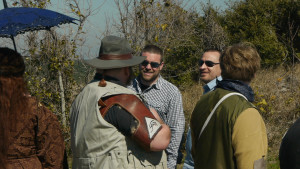
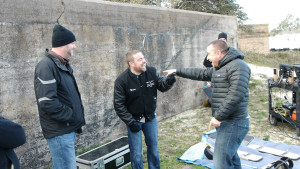
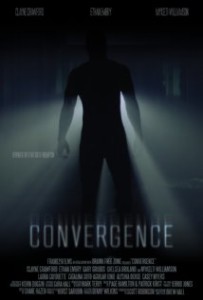
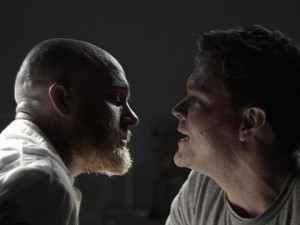
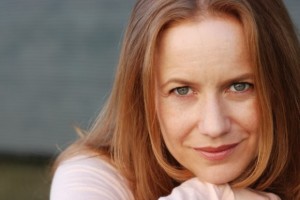
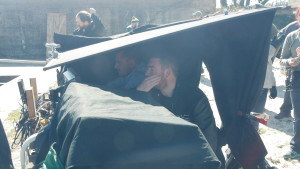
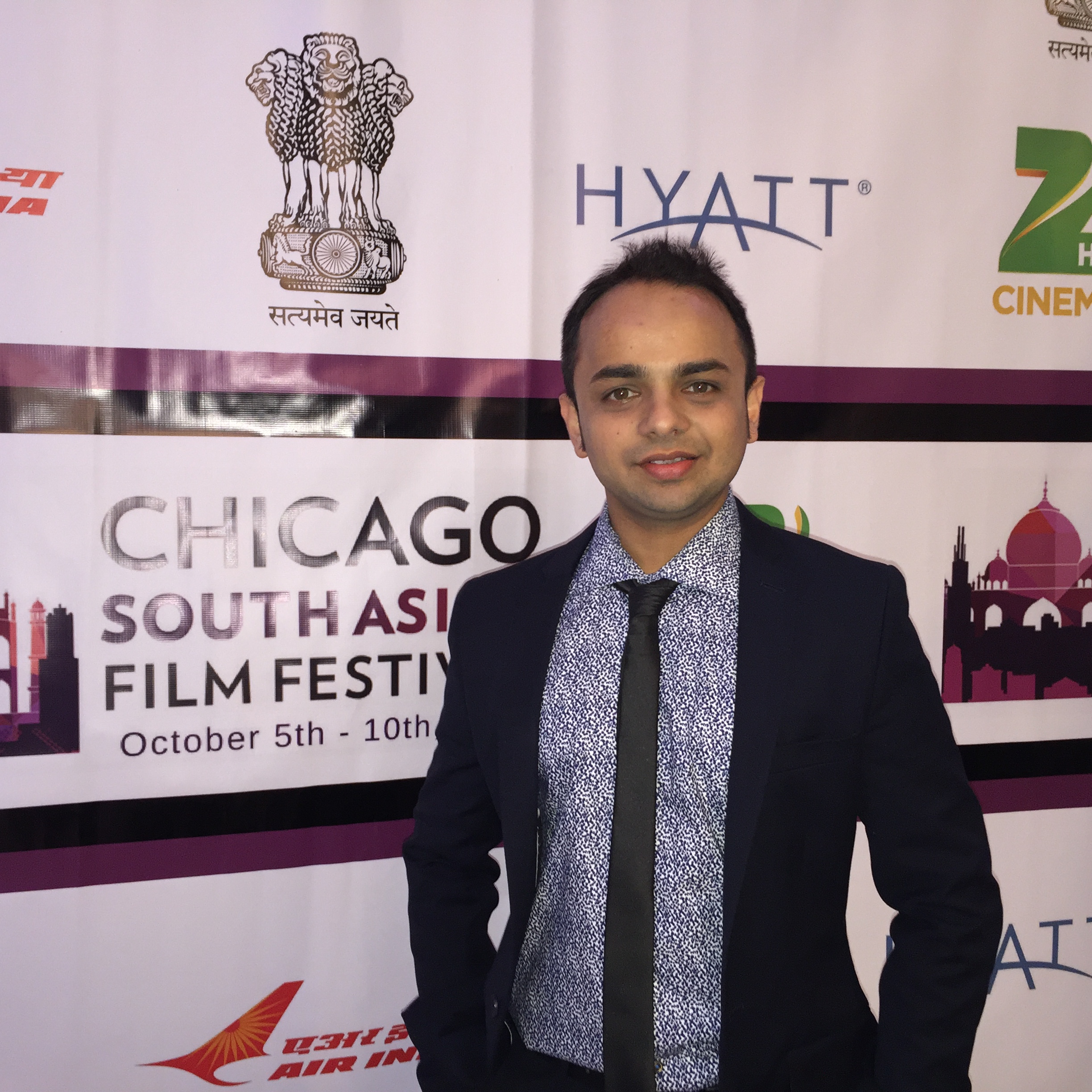
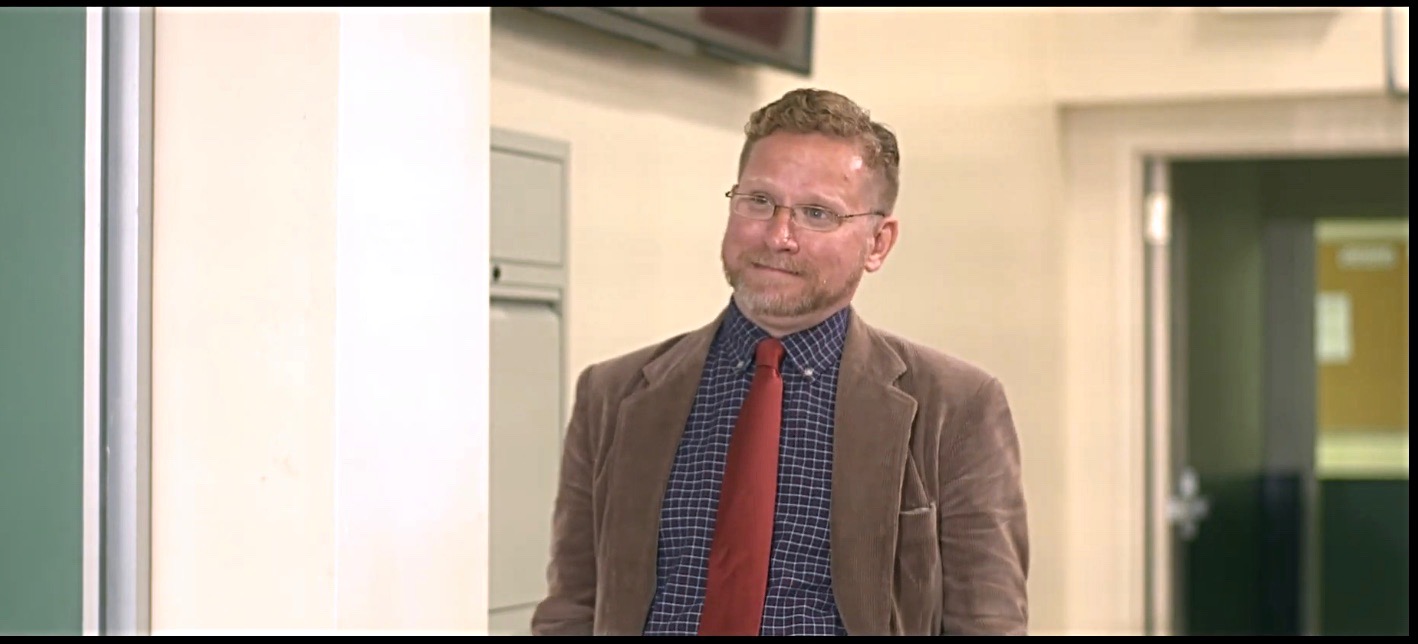
Thanks for one’s marvelous posting! I certainly enjoyed reading it,
you may be a great author.I will be sure to bookmark your blog and may come
back sometime soon. I want to encourage that you continue your great posts,
have a nice day!